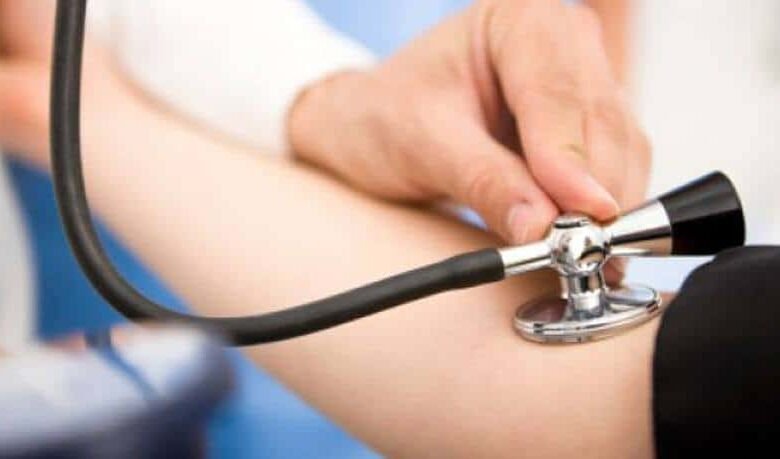Low blood pressure

What is low blood pressure?
Low blood pressure is a condition that is difficult to treat. While high blood pressure is defined as a “silent killer” and is associated with certain symptoms, hypotension may be normal for a person if they have no symptoms, but it will be of great concern if it is associated with abnormal body function.
Sometimes low blood pressure is helpful as it keeps blood pressure under control. But in other cases it is harmful because it does not provide enough blood flow to all the organs of the body.
Blood pressure is determined by two components and they are expressed in a ratio.
Normal blood pressure is 120/80 and measures the pressure of the blood on the arteries.
What are the causes of hypotension?
One of the possible causes of hypotension is a weakness of the heart and its inability to pump enough blood around the body.
This can be due to various heart problems, such as heart failure, arrhythmias or valve damage.
When the heart is not functioning optimally, blood cannot move efficiently, resulting in reduced blood pressure.
Another common cause of hypotension is related to the walls of the arteries. If the arteries become stiff and lose their elasticity, they cannot expand and collect more blood when the heart pumps its blood through them. This also leads to reduced blood pressure and can lead to serious health problems.
In addition, an insufficient amount of intravascular fluid (fluid in the blood vessels) can also contribute to the development of hypotension.
If the volume of blood or other body fluids is insufficient, this can reduce the pressure in the circulatory system.
Although these three situations are often associated with hypotension, it is important to note that the condition can be very individual and there are many other factors that can affect blood pressure.
Hypotension Symptoms
Dizziness and weakness are the most common symptoms of hypotension. The affected person feels susceptible to losing balance and may experience unsteadiness when standing or sitting.
Fatigue is also often experienced, which can be explained by the reduced supply of blood and oxygen to the muscles and tissues.
Shortness of breath is another common symptom of hypotension. Reduced blood pressure can lead to insufficient blood supply to the lungs and tissues of the respiratory system, resulting in shortness of breath and difficulty breathing.
Some people with hypotension also experience chest pain. This can happen when the heart does not supply enough oxygenated blood to the heart muscle.
As a result, the affected person may experience pain or discomfort in the chest, which is especially evident during physical exertion or stress.
The symptoms of hypotension also depend on which organ is not well supplied with blood. For example, if the cerebral blood supply is reduced, headaches, dizziness and blurred vision may occur.
If the liver does not receive enough blood, eating can become difficult and symptoms such as unusual hunger and weakness can occur.
What could be the complications?
If hypotension leads to a lack of blood supply to some organs, it can cause their damage.
Stroke, heart attack, kidney failure and intestinal ischemia – reduced blood supply to the small and large intestines are possible.
Prolonged hypotension can cause severe shock or death in the affected person.
Treatment of hypotension
Usually low blood pressure does not require treatment. If low blood pressure causes chest pain, shortness of breath, or is due to heavy bleeding, a case-by-case diagnosis is made and then appropriate treatment is determined.
If the patient’s condition worsens, he may be admitted to a hospital for further treatment.
A patient with low blood pressure that is symptomatic may go into shock (a condition in which the body’s organs cannot function due to a lack of blood supply).
Infusion of intravascular fluid, placement of an oxygen mask, and monitoring of cardiac activity are required to determine the specific cause of hypotension.
More often than not, in the presence of symptoms, the affected person feels well and the attending physician must determine the cause of the low blood pressure and the treatment should be aimed at its elimination.
How to prevent hypotension?
The best way to prevent hypotension is by drinking plenty of fluids. When you sweat from exercise or from hot weather, blood pressure can drop sharply due to dehydration.
If you feel down you can drink energy drink or broth. By replacing the lost fluids your blood pressure will quickly normalize.. Of course, plain drinking water is also very suitable.
Eat regularly. How long ago did you last eat? If in the past few hours, you need to eat something, even if it is very small, for example a piece of fruit or a bit of cheese.
Some people feel dizzy when they get out of bed in the morning or after sitting for a long time when standing up, this is a sure sign of low blood pressure.
In this position, they should move their legs while sitting occasionally for a few seconds or when they stand up to do so not suddenly.



